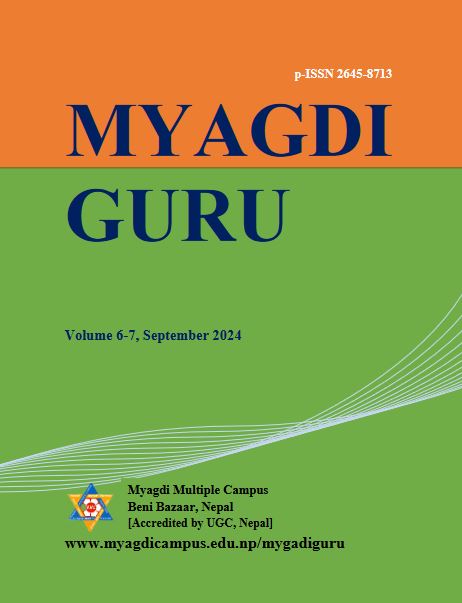Implementing the Rights of Persons with Disabilities in Nepal: Evidences from the Rural Municipalities
DOI:
https://doi.org/10.3126/mg.v7i1.70045Keywords:
Accessibility, human rights, implementation, persons with disability, rural municipalitiesAbstract
United Nations: Conventions on the Rights of Persons with Disabilities, 2006, Disability Right Act, 2017 and Accessibility Standard Building Codes, 1998, have directed for improving physical accessibility, and ensuring access of manageable infrastructure including public and private buildings, transportation and communication to create a barrier-free environment for the persons with disabilities. However, implementation of these policies are still questioned and discussed in Nepal. Engaging the provisions mandated by the policies, the research has tried to explore the status of policy implementation disability right in rural setting, Nepal. The research has employed the human rights theory to encompass the motto “…each and every born human being has inherent dignity” and adopted principles of CRPD. The study has examined the execution of accessibility policies for persons with disabilities in Tarakhola and Badigad Rural Municipalities of Baglung district, Nepal in particular. The paper has followed descriptive research design and exploratory research methods investigating a problem that is not well defined. The data was collected taking responses of municipal authorities via accessibility checklists prepared, as per the parameters of universal design, 1990. The research found that both rural municipalities lacked proper accessibility as guided by the policies like need of proper signage and information, lack of sign language interpreters, inadequate toilet facilities, and lack of proper disaster management mechanism. The conclusion was drawn that both rural municipalities have taken steps towards improving accessibility, but they are insufficient as per the needs of the persons with disability. To fully implement the policies, it is recommended to modify existing and construct forthcoming infrastructures with full disability friendly environment. The findings of the study suggest that both local bodies need to collaborate with disability organizations to get more ideas of inclusivity and compliance with national and international accessibility standards.
Downloads
Downloads
Published
How to Cite
Issue
Section
License
Copyright (c) 2024 The Author(s)

This work is licensed under a Creative Commons Attribution 4.0 International License.
This license enables reusers to distribute, remix, adapt, and build upon the material in any medium or format, so long as attribution is given to the creator. The license allows for commercial use.




